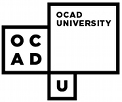Direct links to New Project Websites:
- BIG IDeA
- Bodies in Translation
- Center on Inclusive Software for Learning (CISL)
- Our Doors are Open
- Platform Co-op/
- Preferences for Global Access
- Prosperity4All
- The Social Justice Repair Kit
Project Descriptions:
- Automated Personalization Computer Project (APCP)
In collaboration with the American Job Centers, community colleges, and high schools, the APCP project will help take the auto-personalization function of the Global Public Inclusive Infrastructure (GPII) from the proof-of-concept stage through to a high-quality, broadly-used open source implementation. Led by the TRACE Center at the University of Maryland, the IDRC is contributing to the project’s overall software architecture, security and web personalization infrastructure, and individualized metrics-gathering tools. - BIG IDeA
BIG IDeA (Business Innovation Guide for Inclusion Design and Accessibility) brings together businesses, customers with lived experience of disability and designers to collaboratively advance accessibility innovation in Ontario and create a culture of accessibility and inclusion. We are:- Collecting inclusion barriers and hosting design challenges to create inclusive alternatives
- Mapping accessibility of Ontario in our BIG IDeA mapathon (visit: https://tinyurl.com/kllbe44])
- Recognizing accessible businesses through customer reviews, showcases and badges
- Providing resources, training and help on inclusion and AODA compliance
- Bodies in Translation
Bodies in Translation is a research project that creates collaborative partnerships between artists, arts organizations, activists, scholars, and educators. With the Canadian disability arts community, the IDRC is co-designing the project’s Knowledge Platform as well as new technologies to support inclusive artistic creation. - Center on Inclusive Software for Learning (CISL)
This project brings inclusive open education tools and knowledge from the FLOE Project to the newly-announced Center on Inclusive Software for Learning (CISL). Led by CAST, CISL will support the development of an open-source software suite, industry guidelines and supporting research to ensure K-12 students get engaging personalized learning through Open Education Resources. - Our Doors are Open
Our Doors Are Open: A Multi-Faith Welcome to Persons with Disabilities will develop good practices for inclusive community engagement by places of worship of all faiths across Ontario, and support them to achieve a culture of inclusion in services and community gatherings. Our Doors are Open will provide:- training-materials and resources,
- community inclusion workshops
- train-the-trainer seminars
- accessibility assessments and guidance on digital communications
- accessibility mapathon kits to help you build awareness in your congregation
- Platform Co-op/
In collaboration with the Platform Co-op movement, the goal of the project is to realize the full aspirations of Platform for Economic Inclusion. Together with Trebor Scholtz, the Platform Co-op Consortium and the New School, the IDRC will be developing a Platform Co-op Development Kit with the support of several foundations. The first implementation will be focused on care: childcare, attendant care and eldercare. “The work that makes all other work possible." - Preferences for Global Access
The goal of this project is the design and development of web software to assist users with disabilities in creating online user profiles that specify their needs and preferences for how online information and services should be presented to them. The key to ensuring successful access to information and services is a personal statement expressing needs and preferences for specific contexts and goals. These "preference sets" automatically configure information and applications to meet individual. This team is developing tools and technologies to support users in specifying their individual needs and preferences in several application settings. - Prosperity4All
Prosperity4All develops the infrastructure and ecosystem that will allow for a ubiquitous auto-personalization of interfaces and materials, based on user needs and preferences, to grow (promote self-rewarding collaboration, reduce redundant development, lower costs, increase market reach and penetration internationally). - The Social Justice Repair Kit
The goal of this project is to

